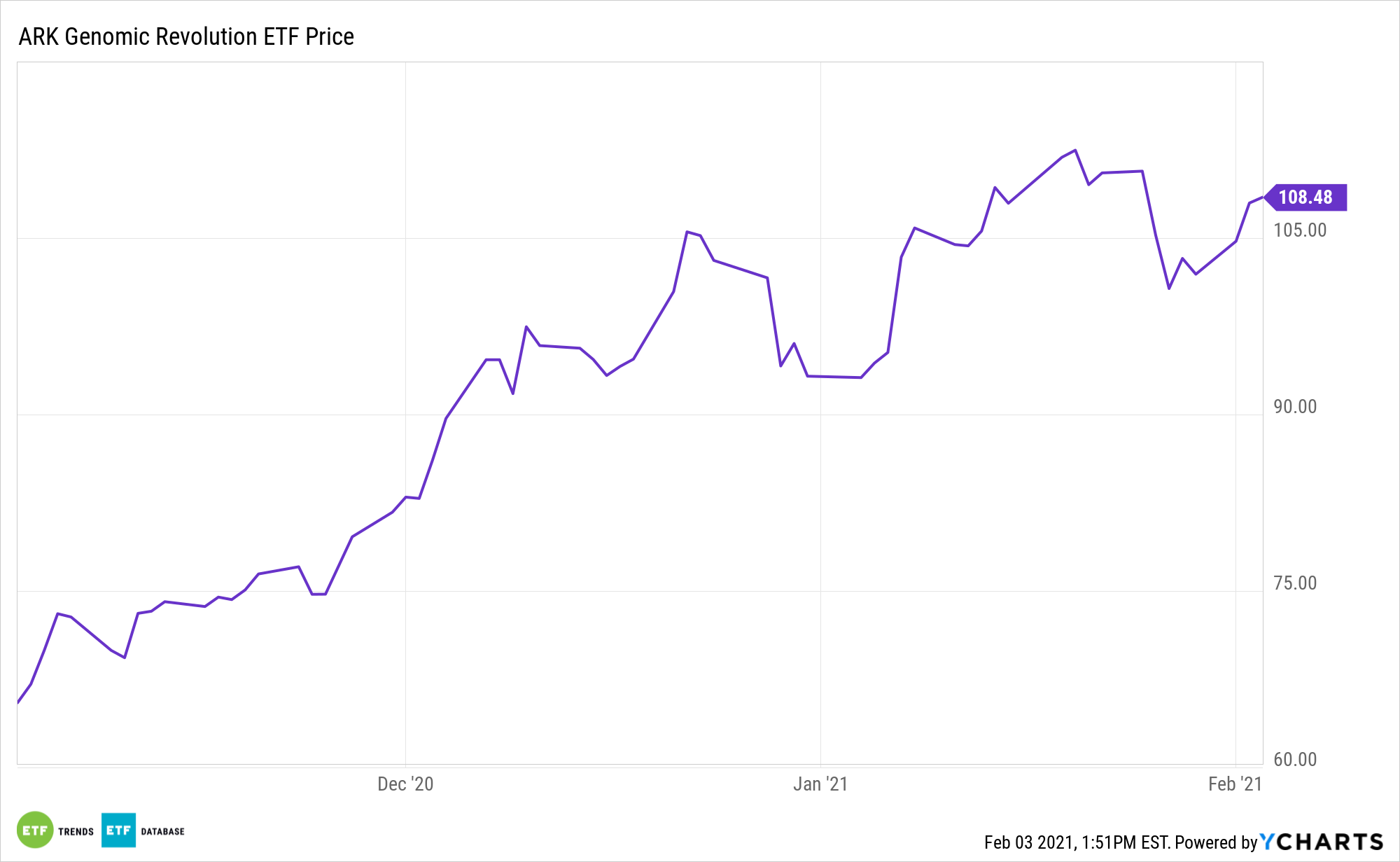Ground zero for disruptive growth in the healthcare sector is genomics through the ARK Genomic Revolution Multi-Sector Fund (CBOE: ARKG).
ARKG holds equity securities of companies across multiple sectors, including health care, information technology, materials, energy, and consumer discretionary, that are relevant to the fund’s genomics theme. The active management team behind the ARKG strategy combines a top-down and bottom-up research methodology to identify innovative companies and convergence across markets.
The second generation of cell and gene therapy is one of multiple frontiers ARKG provides exposure to. It’s also lacking in many old-school biotechnology ETFs.
“New cell and gene therapy innovations could increase the total addressable market for oncology therapeutics by more than 20-fold,” according to ARK Research.

Access Cutting-Edge Genomics with ARK
The actively managed ARKG offers investors a thematic multi-capitalization exposure to innovative elements that cover advancements in gene therapy bio-informatics, bio-inspired computing, molecular medicine, and pharmaceutical innovations.
ARKG includes companies that merge healthcare with technology and capitalize on the revolution in genomic sequencing. These companies try to better understand how biological information is collected, processed, and applied by reducing guesswork and enhancing precision.
Interestingly, ARKG marries one disruptive technology with others.
“The US Food and Drug Administration (FDA) approved Gleevec, an oral chemotherapy, after ten years of trials, seven years of which were in solid tumors. This timeline suggests that the FDA could approve the first CAR-T therapy for solid tumors in 2025,” notes ARK. “Because of artificial intelligence (AI), gene-editing, and next generation sequencing (NGS), failure rates and time-to-market should fall, accelerating approval rates.”
The evolution of gene therapies from ex vivo to in vivo is another scenario worth monitoring in the coming years.
“Unlike ex vivo, in vivo therapies cannot check edited cells before transduction. That said, in vivo gene therapy is more cost effective and easier to manufacture and scale. It also enables more access to the liver, eye, central nervous system (CNS), and muscles,” concludes ARK.
For more on disruptive technologies, visit our Disruptive Technology Channel.
The opinions and forecasts expressed herein are solely those of Tom Lydon, and may not actually come to pass. Information on this site should not be used or construed as an offer to sell, a solicitation of an offer to buy, or a recommendation for any product.

